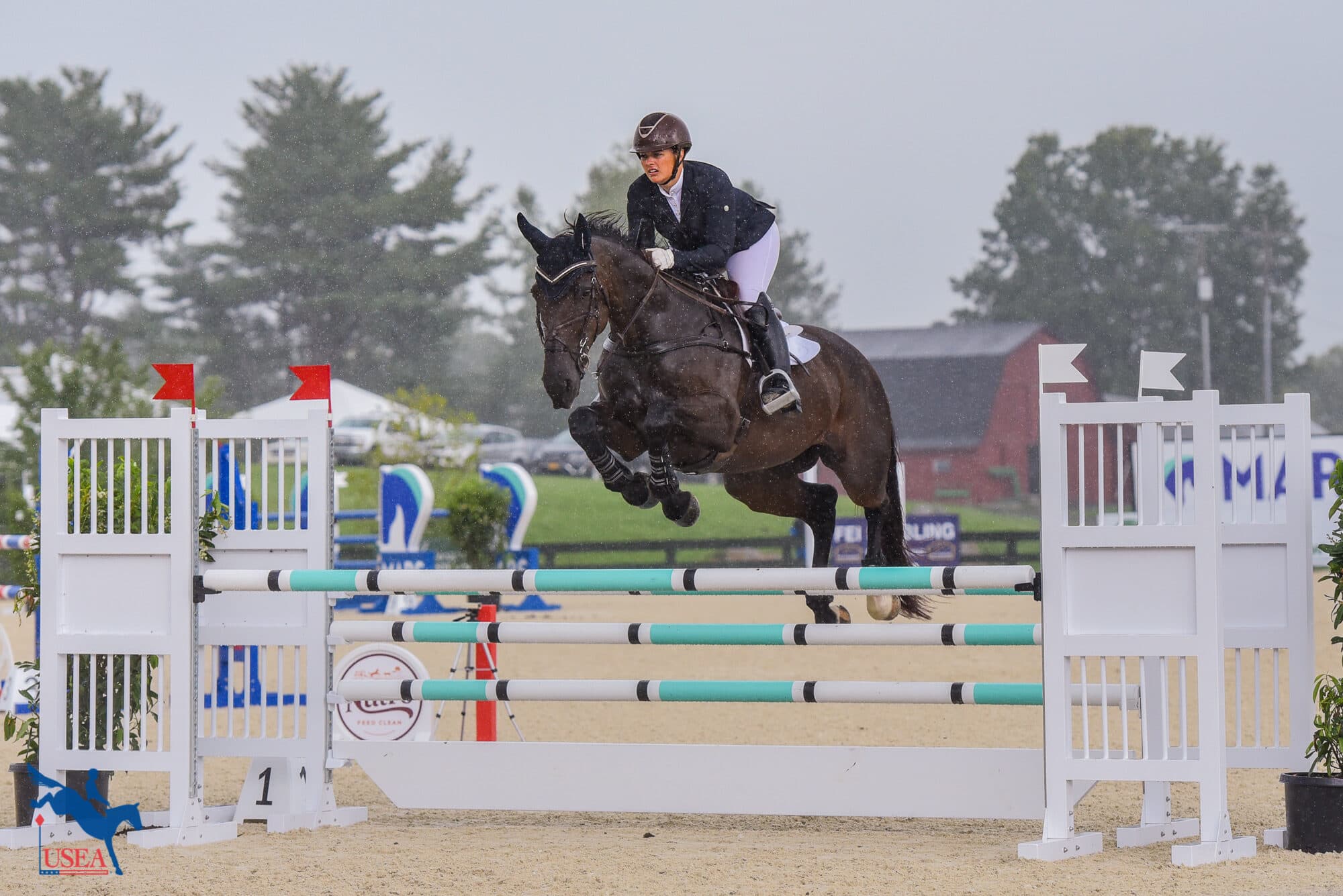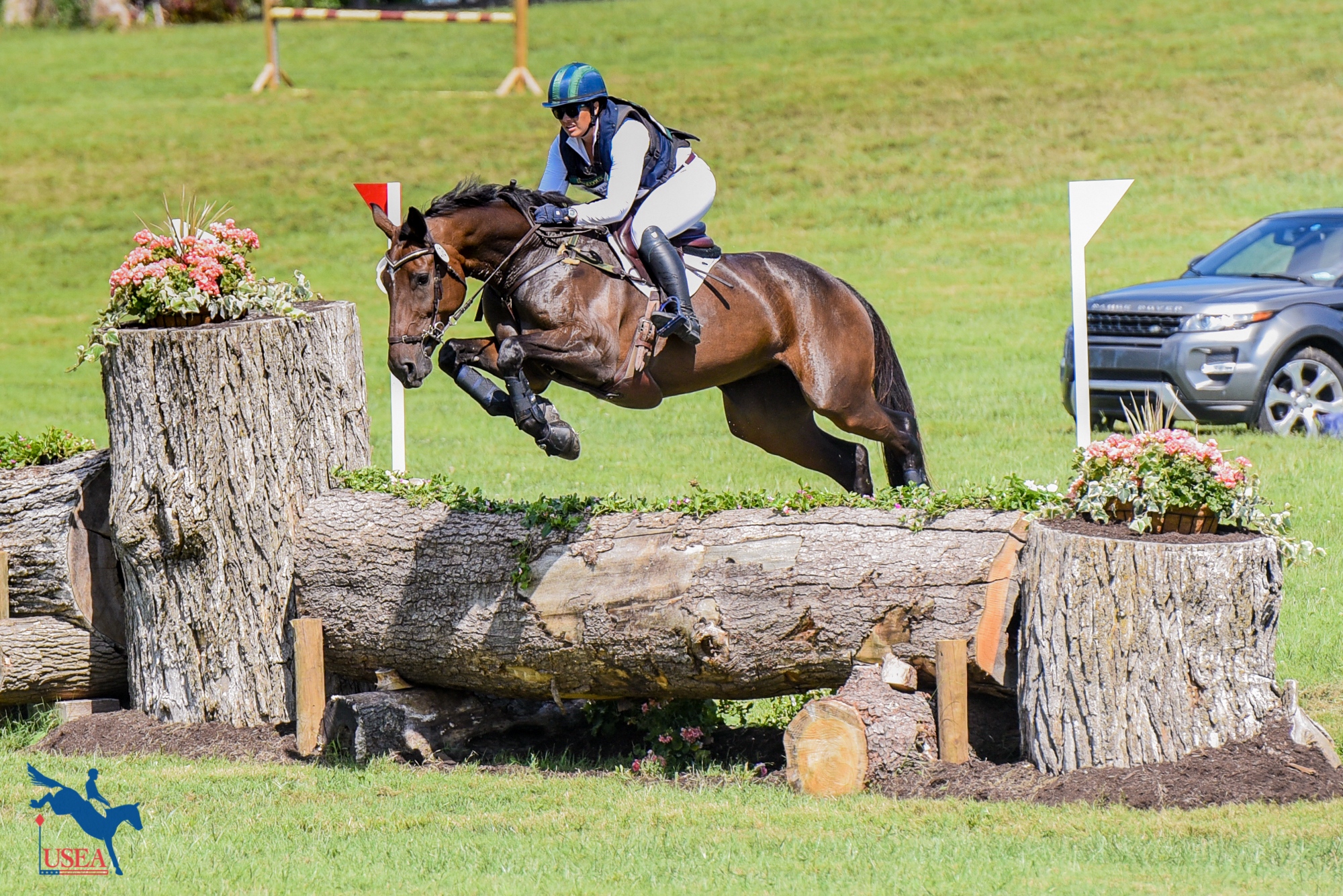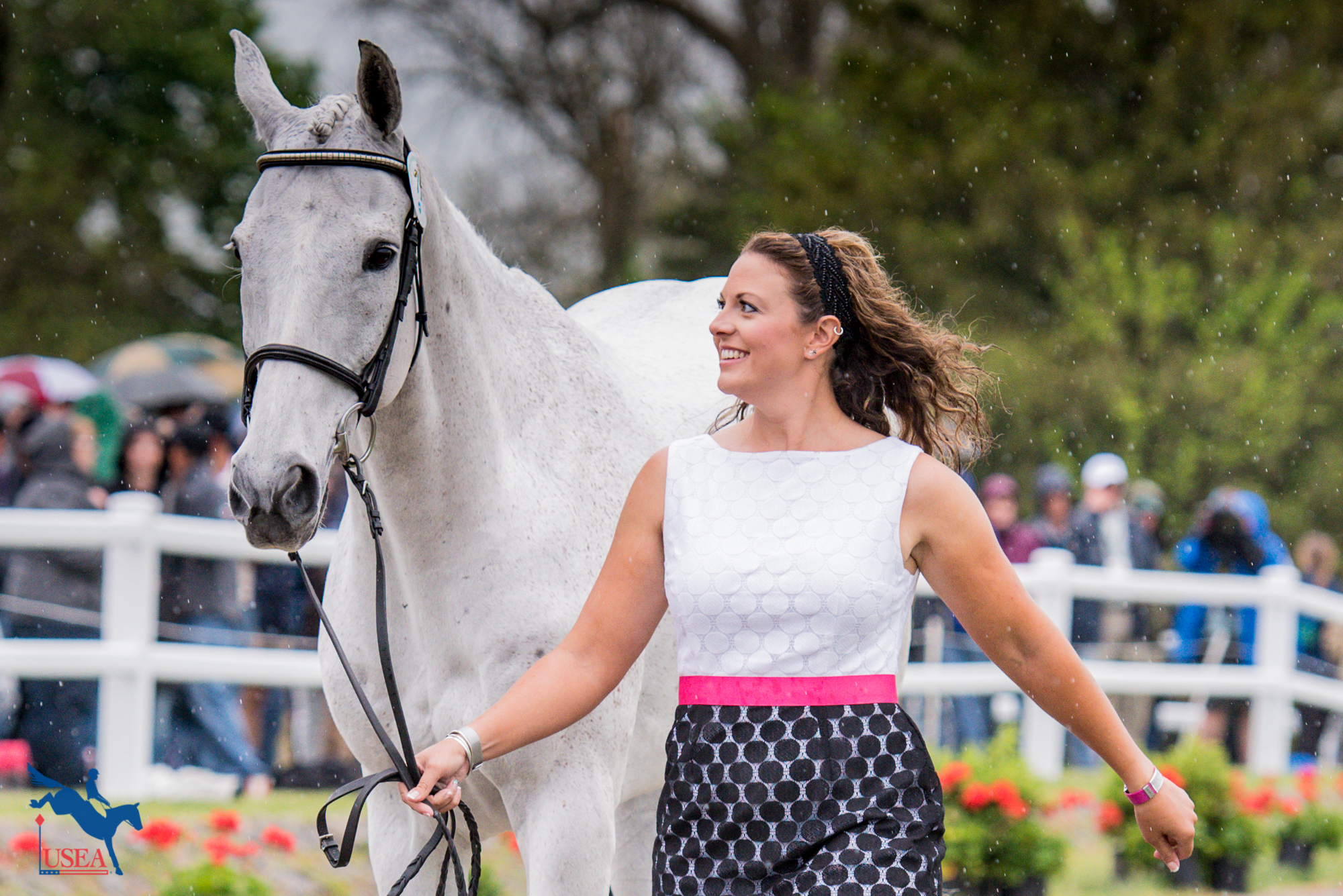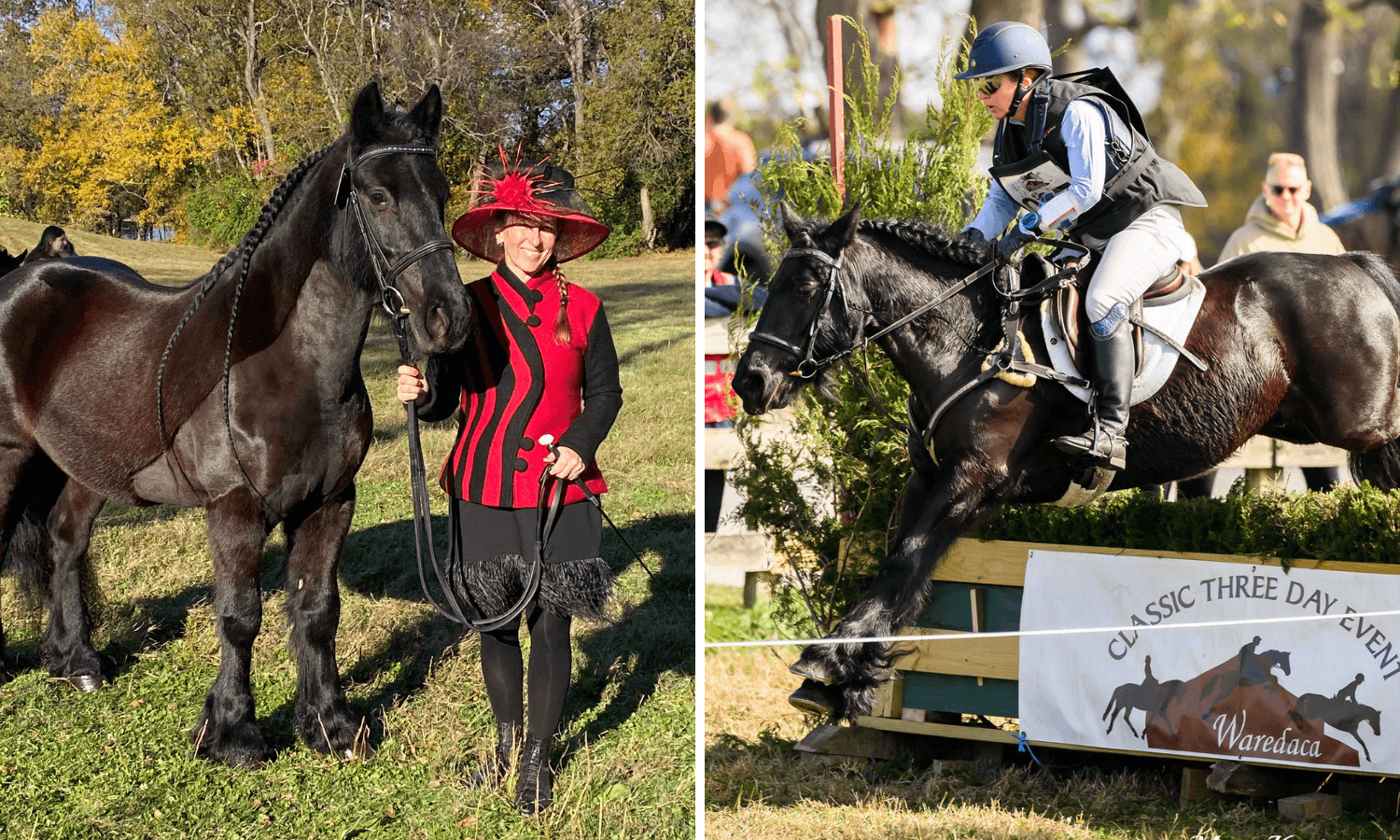Staying Sharp in the Saddle with Lisa Barry

“Exercise out of the saddle is very important because our bodies can get used to doing the same simple things in the tack,” explained five-star eventer Lisa Barry. “Horses and our sport are unpredictable, so the more fit and strong you can be out of the saddle the better off you’ll be to perform at your best when things are going well, not to mention when they’re not.”
Barry began riding horses at a young age and rode on the Area VIII CCI* (now CCI2*-L) team at the 2002 North American Junior/Young Rider Championships and the Area II CCI2* (now CCI3*-L) team at the 2005 North American Junior/Young Rider Championships as a young rider. When she was 17, she went to work for the O’Connor Event Team. Now she runs her own business, Lisa Barry Equestrian, in Ocala, Florida, where she trains horses and riders for eventing. And through it all, out-of-the-saddle fitness has been a part of her success.
“I grew up as a gymnast in addition to riding, so I was taught from a young age that strength and cardio fitness are very important to all athletes!” she shared. “For me, the core strength has helped me with my balance and ability to stay with the horses (for the most part!) when silly things happen or something goes wrong. The cardio really comes into play on cross-country for me – I can feel a huge difference in my fatigue level on a strong horse when I’m not cardio fit.”

It helps that Barry truly enjoys the time she spends in the gym. For many years she was a proponent of CrossFit workouts and now she attends Orangetheory classes, which incorporates treadmills, rowing machines, and weightlifting into hour-long high-intensity interval training (HIIT) workouts. “I try to go a minimum of three days a week,” she said.
No matter how she chooses to get her exercise outside the saddle, Barry focuses on her core. “Core exercises I think are the most important,” she explained. “The more strength you carry in your core, the more centered and effective you can be, especially for us eventers that have three very different jobs to do all at one competition.”
Even the fittest riders are not immune to injury, and Barry is no different. In November, she was in a freak accident in the barn and fractured her skull. She was bed-bound for six weeks, and her recovery from symptoms of a concussion stretched well beyond that. When she was able, she began adding exercise routines back into her schedule, but she took it slowly. “The most important thing you can do when recovering from any injury is to go slow and listen to your body,” she stressed. “I went back to small workouts with light weights and lots of walking and then slowly increased as I felt I could until I was back to normal.”

Barry’s tips for enjoying fitness work outside the saddle are to choose activities you enjoy and bring a friend! “If you need to add some sort of workout out of the tack to your routine like cross-training, make sure it’s something you enjoy or minimum that you have a support system like a buddy to do it with,” she said. “If you attempt to add something you like, you’re more likely to continue and make progress than if you add something you hate!”
Fitness isn’t all just working out, though! “I think an important addition is to make sure you drink enough water, eat as well as you can, and get plenty of sleep,” Barry concluded. “All of those things will make success in all ways easier to attain!”
If you have a unique fitness routine, the USEA wants to hear from you! Email Jessica Duffy at [email protected] with your fitness routines, stories, or advice. To read other articles about rider fitness, click here.















